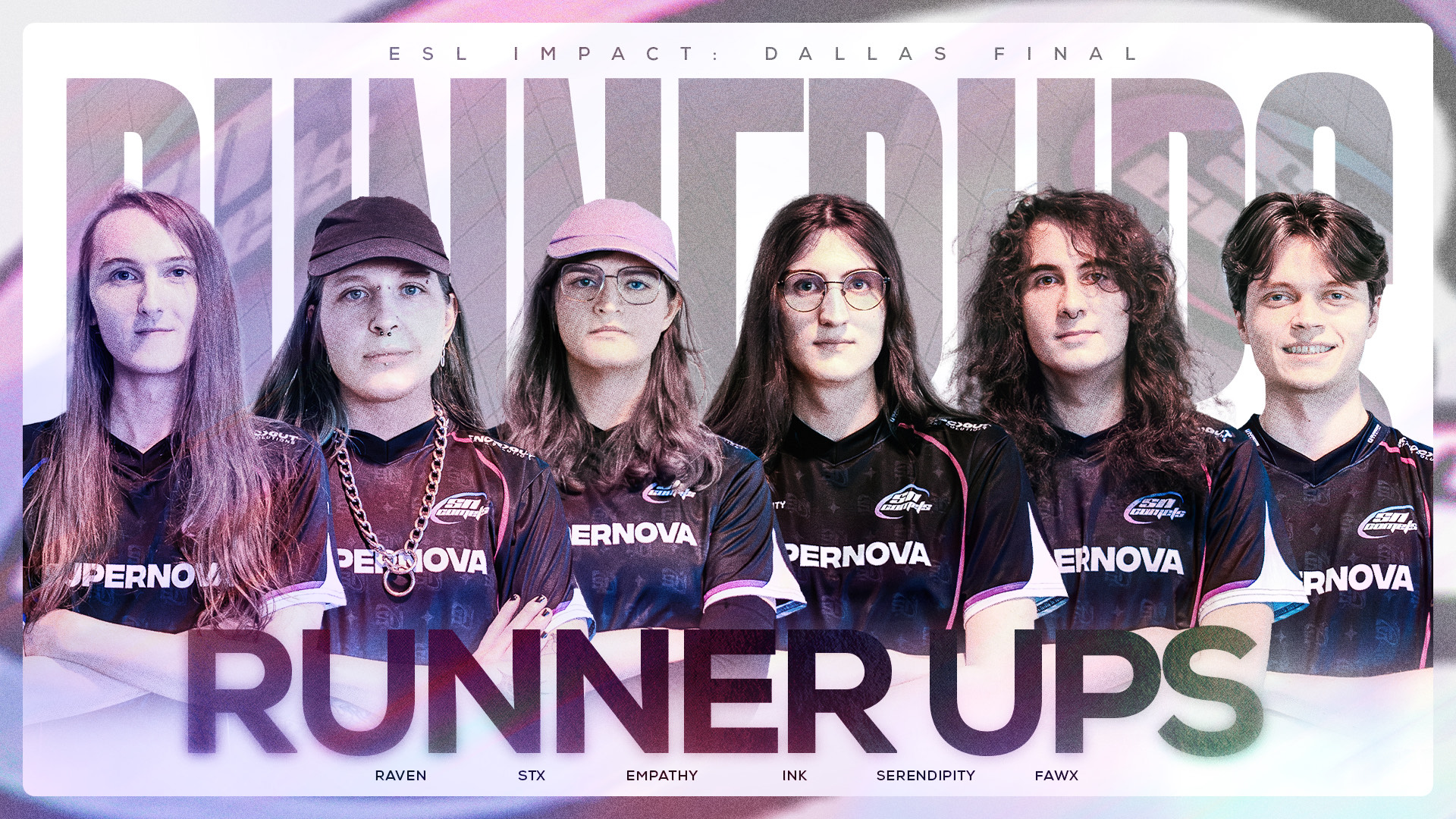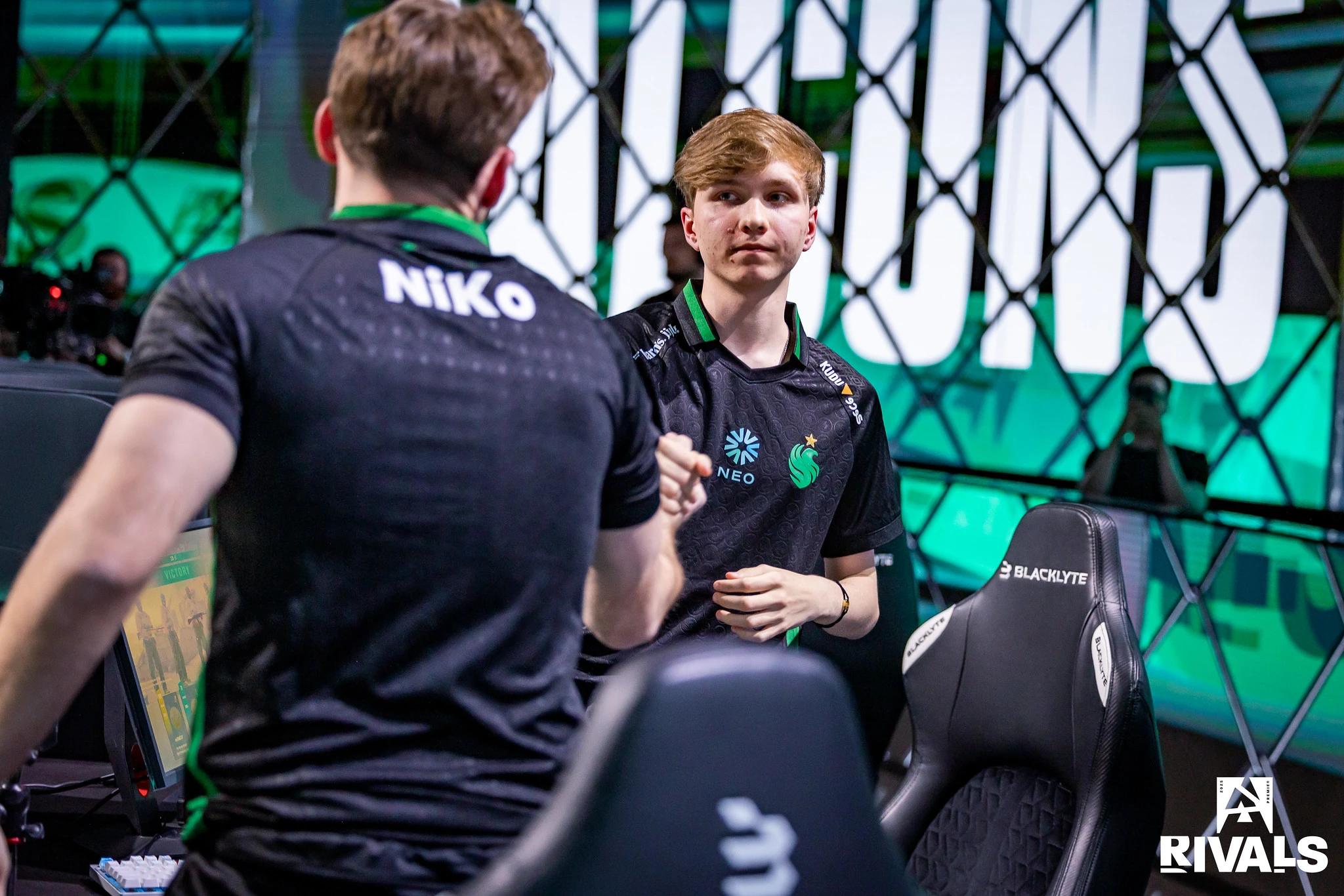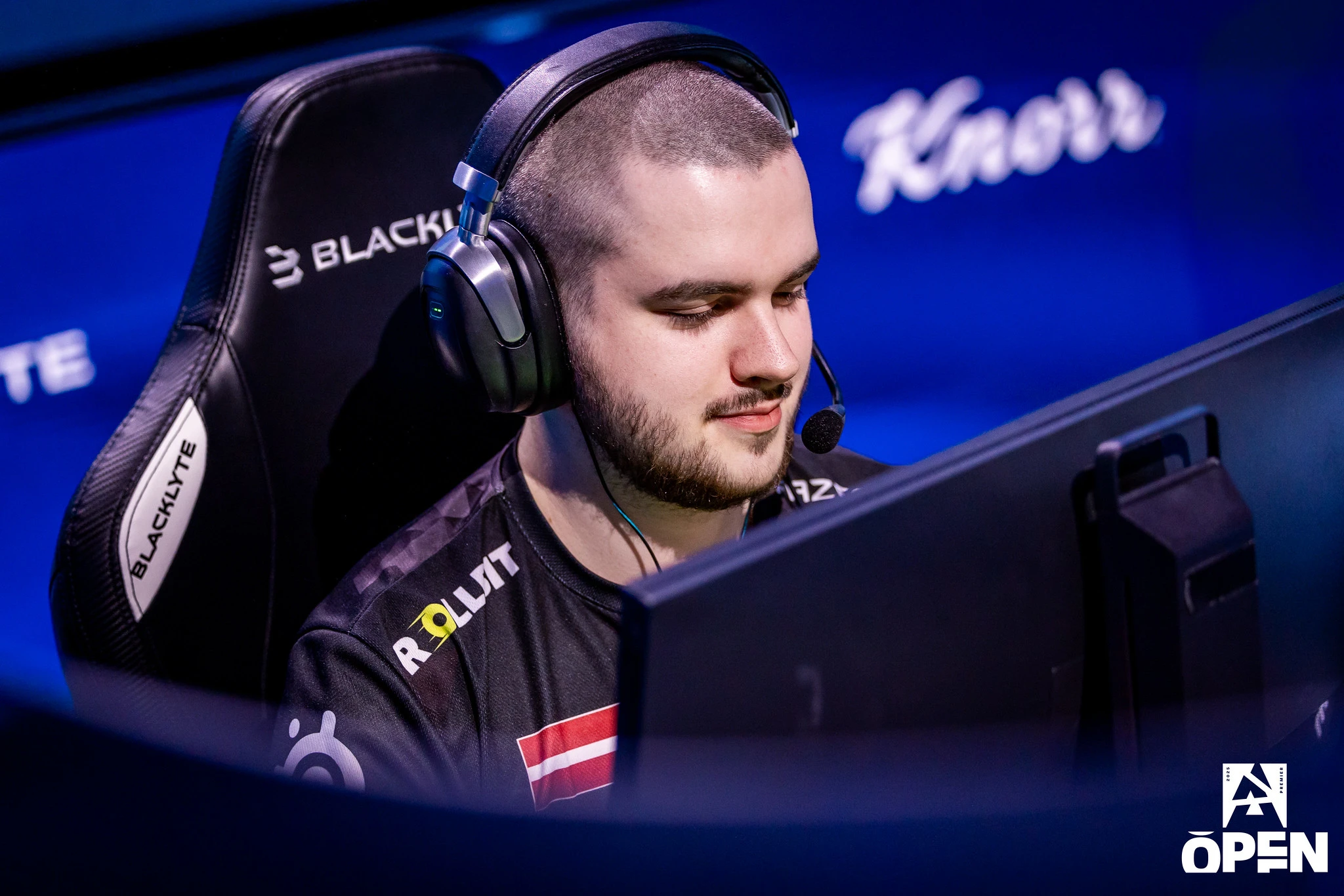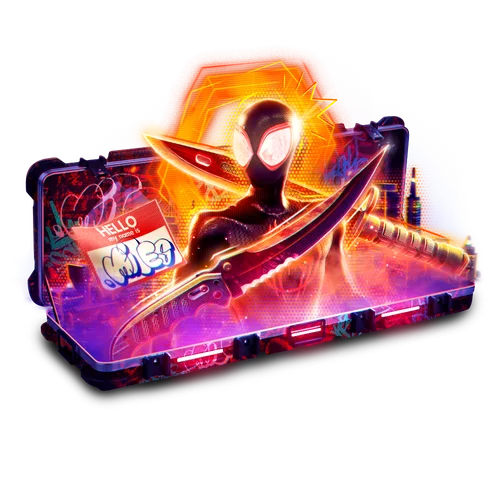While the men’s IEM Dallas 2025 tournament was taking place, ESL hosted the finals of the women’s ESL Impact Season 7 at the same venue.
This tournament, created to support the women’s scene, unexpectedly became the epicenter of one of the most heated debates in the history of women’s esports. The reason? The emergence of Supernova Comets — a team composed entirely of transgender women — reaching the grand final.
Who are Supernova Comets?
Supernova Comets is a new North American team formed on February 5, 2025. All five players previously competed under the Shimmer banner, and the project was built from the ground up by coach Ink, who joined the team on the same day.
Team roster:
- Lucy “empathy” Verkaik
- Wrenna “Stx” Trampel
- Lydia “Fawx” Dalton
- Raven “raven” Sol
- Sylvie “Serendipity” Splaver
All players are openly transgender women. Despite having been part of the esports scene for some time, none of them had achieved significant success prior to 2025. They often moved between teams like Shimmer, Lotus fe, and Imp Pact and had not won tournaments in the men’s circuit.
However, forming Supernova Comets became a turning point. The team dominated the North American division of ESL Impact League Season 7, winning all group stage matches 2–0, including victories over FlyQuest RED and Lumen fe. They eventually lost in the grand final of the global league, finishing in second place but showing strong gameplay.

Outside of the women’s scene, however, Supernova Comets still struggle to compete on equal footing. In April and May 2025, they lost to teams like GameHunters, Legacy, and MIGHT in mixed-gender tournaments like Thunderpick and Fragadelphia, finishing outside the top 8.
The Semifinal Scandal
The controversy peaked after their semifinal match against NiP. NaToSaphiX, coach of the Swedish team, claimed that while he was consoling his players after their loss, members of Supernova Comets mocked them with the phrase:
Welcome to North America.
This sparked a wave of criticism and accusations of unsportsmanlike behavior. The incident reignited the debate over the fairness of allowing transgender women to compete in women’s leagues.
Semmler Comment
The situation escalated further due to comments made by well-known commentator August “Semmler” Masson on the Revenge of By the Numbers podcast. He stated outright:
Transgender people are not fully women and should not be competing in women’s leagues.
He referenced Riot Games’ policy in VALORANT Game Changers, where non-binary players are labeled differently.
Later, Semmler doubled down on social media, reaffirming that he supports protecting the integrity of the women’s scene.
What does ESL say?
ESL Impact League, established in 2021, has officially allowed transgender women to participate from the start — provided their gender identity is documented.
There are no requirements regarding hormone therapy or gender reassignment surgery. This policy enabled teams like Supernova Comets to enter — along with many others.
Arguments from both sides
Against transgender participation:
- Potential physiological and gameplay advantages retained from competing in men’s CS.
- Possibility of exploiting gender identity to enter easier tournaments.
- Scandals and unethical behavior following opponents’ defeats.
- Suggestions to create a separate league for transgender players.
In defense of transgender players:
- ESL officially permits transgender women to compete.
- Supernova Comets don’t win easily — every match is hard-fought.
- The team aims to show that diversity is strength.
- Their message is one of changing perceptions and promoting inclusivity in esports.
Where does inclusion end and unfairness begin?
The ESL Impact 2025 controversy highlighted how nuanced and sensitive the topic of inclusion remains in esports.
On one hand, there are transgender players seeking recognition and equal opportunity. On the other — concerns about losing fair competition and equal conditions for cisgender women.
Both sides raise valid points, but finding a clear answer to who is right isn’t easy.
Where does inclusivity end and fairness begin? The question remains open.
What do you think?









































